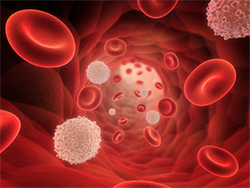
For at least 40 years, scientists who study how the body metabolizes sugar have long accepted one point: there are four enzymes that kick-start the body’s process of getting energy from food.
A new study from Northwestern Medicine and Duke University shows a fifth enzyme, called HKDC1, may be a genetic predictor for whether an expectant mother develops hyperglycemia, or excess blood sugar, while she is pregnant.
The findings were recently published in the journal Nature Communications.
“This study shows the benefit of large-scale genetic studies as they begin to shed light on new molecules that are important for metabolism,” said William Lowe, Jr, MD, vice dean of academic affairs and professor of Medicine-Endocrinology, and one of the study’s authors.
Approximately 10 percent of women in the U.S. develop gestational hyperglycemia during pregnancy. According to a landmark study published in the New England Journal of Medicine in 2008, hyperglycemia during pregnancy may have many of the same harmful long-term health effects as full-blown gestational diabetes.
“The discovery of this gene creates a path forward to better predicting a woman’s risk,” said senior author Tim Reddy, PhD, assistant professor of biostatistics and bioinformatics at Duke University. “This information could contribute to diagnostic decisions. Knowing that there is this new hexokinase at play could also give us more information on how to inhibit or activate it, and anything we can to do disrupt the cycle would be an important advance to stem the epidemic of diabetes we see today.”
In addition to the risk for expectant mothers, hyperglycemia creates a potentially harmful environment for a growing fetus and can contribute to obesity and diabetes later in the child’s life.
“We know that these children may be more likely to be born large and be subject to health impacts down the road, such as obesity and diabetes,” Reddy said.
Doctors counsel expectant mothers on the risks of high blood sugar and the benefits of proper diet and exercise to lessen the risk, but there currently isn’t a method to screen women for their risk of developing high blood sugar while pregnant. Often, mothers are diagnosed too late, when they have already developed diabetes.
“Further investigation into this enzyme will give doctors an important tool to help predict an expectant mothers risk and could create potential targets for new therapies for metabolic conditions like hyperglycemia,” Dr. Lowe said.
Additional Feinberg authors include M. Geoffrey Hayes, PhD, assistant professor in Medicine-Endocrinology; Denise Scholtens, PhD, associate professor in Preventive Medicine-Biostatistics and Neurological Surgery; Brian Layden, MD, PhD, assistant professor in Medicine-Endocrinology; Anton Ludvik; and Loren Armstrong.
This work was funded by grants from the National Institutes of Health (T32 DK007169; DK42583; R01 MH101822) and the Department of Veterans Affairs Career Development Grant 1IK2BX001587.






